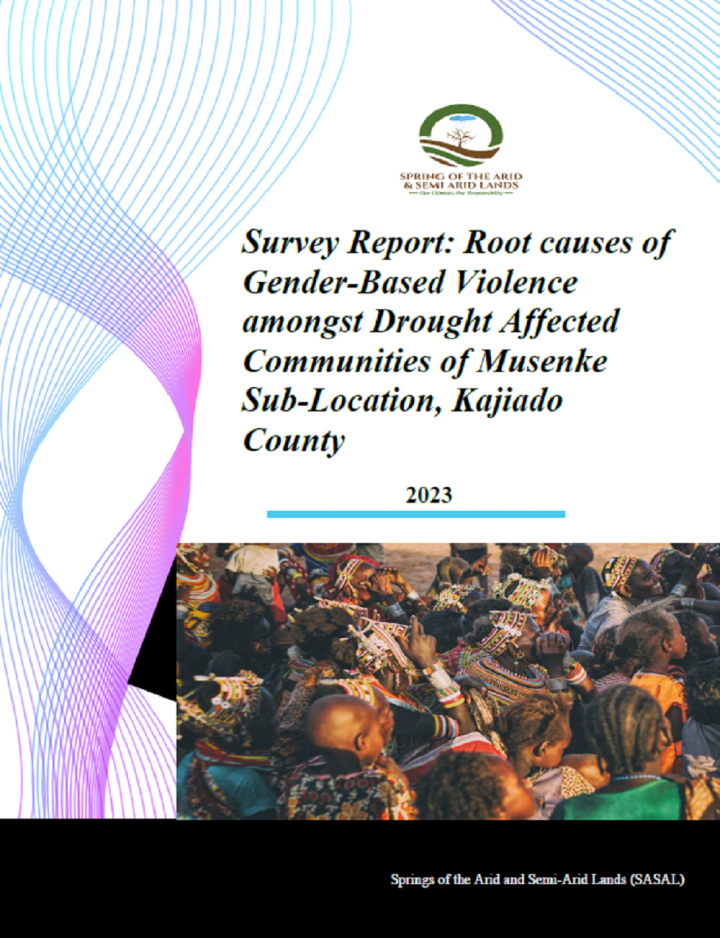Survey Report: Root causes of Gender-Based Violence amongst Drought Affected Communities of Musenke Sub-Location, Kajiado County Springs of the Arid and Semi-Arid Lands (SASAL) (2023)
This study was conducted in the pastoral community of Musenke Sub-Location in Kajiado County (Kenya).
The purpose of this study was to carefully identify root causes of gender-based violence (GBV) and closely associated themes, the extent of harm and level of response. Additionally, the study aimed to understand the community’s cultural practices, economic status and willingness to accept and welcome change. The study also aimed to highlight baselines and statistics thus recommending guidelines to actualize solution programs as well as help in tracking impact and sustainability of gender-based violence in the study locality.
The study established: The most common type of GBV encountered by women and girls of Musenke Sub-Location is psychological/emotional abuse and physical assault. These instances usually occur when they fetch water, collect firewood and when herding animals. Early marriage was prevalent during persistent droughts while the risk of rape and attempted rape was promoted by the long-distance treks to rivers and forests to fetch water and collect firewood. Cultural practices played a major role as a contributor to some forms of GBV such as physical assault, emotional abuse and FGM. Other contributors to GBV identified are; lack of policing services, lack of access to justice channels and lack of awareness amongst the community members. GBV victims within Musenke Sub-Location lack access to professional GBV care services.
Besides the identification of key contributory factors for gender-based violence this study also recommends different solutions to reduce GBV and implement gender-equality.
Bibliographic information
Springs of the Arid and Semi-Arid Lands (SASAL) (2023). Survey Report: Root causes of Gender-Based Violence amongst Drought Affected Communities of Musenke Sub-Location, Kajiado County
Filter / Tags
Politicians and local decision makersPractitionersCase studies in other formatsEnglishGender equalitySexual and gender-based violence
Downloads
Survey Report on the Root causes of gender based violence amongst drought affected Commnuities
Type: application/pdf
Size: 2.48 MB

